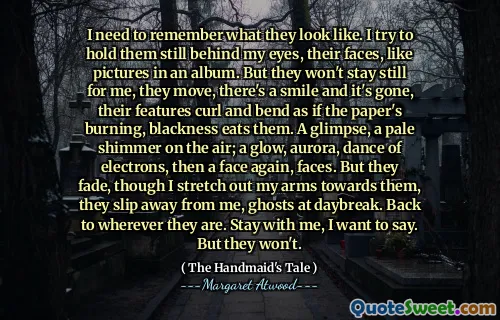Without a word she swivels, as if she's voice activated, as if she's on little oiled wheels, as if she's on top of a music box. I resent this grace of hers. I resent her meek head, bowed as if into a heavy wind. But there is no wind.
The passage reflects the narrator's feelings of jealousy and resentment towards another woman's gracefulness and composure. The way the woman moves, described through mechanical and musical imagery, evokes a sense of envy in the narrator. The contrast between the woman's serene demeanor and the narrator's emotional turmoil hints at underlying tensions and frustrations.
The mention of the woman's bowed head suggests a submissive posture, yet the narrator perceives it as an artificial grace, devoid of genuine emotion. This highlights a complex relationship where the narrator grapples with her own feelings of inadequacy and the oppressive environment that shapes their existence. The absence of wind symbolizes the stillness of their circumstances, amplifying the weight of the narrator's resentment.






